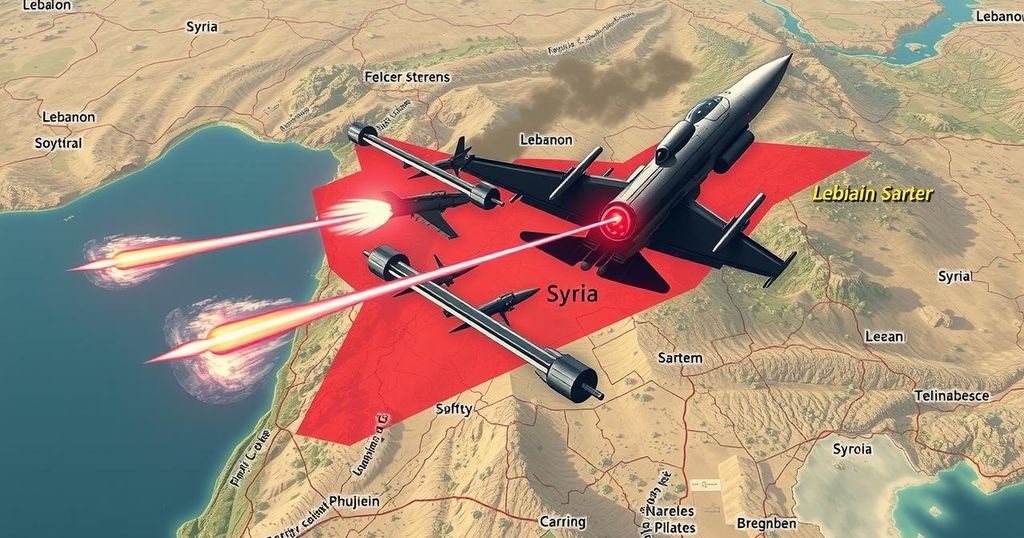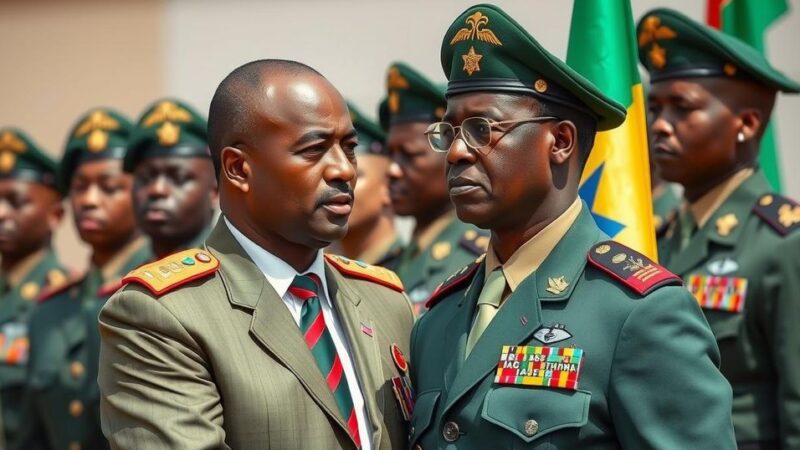As Mahmoud Abbas reaches two decades as Palestinian Authority President, his leadership illustrates the complexities surrounding Palestinian statehood, while political divisions persist, particularly with Hamas. As regional dynamics shift with Saudi Arabia’s involvement in promoting peace, the feasibility of achieving a two-state solution remains uncertain amidst ongoing conflict.
As Palestinian Authority President Mahmoud Abbas commemorates his 20-year tenure, the landscape of Palestinian governance remains intricate, marred by division, disappointment, and an enduring commitment to statehood. Abbas, who ascended to leadership following Yasser Arafat’s death in 2004, has faced myriad challenges that have stunted Palestinian aspirations for autonomy and strained relations with Israel.
Abbas’ presidency has been chiefly characterized by an emphasis on securing Palestinian statehood through diplomatic channels. Daoud Kuttab, a prominent Palestinian journalist, notes, “Ever since taking office, President Abbas has focused all his attention on the realization of an independent Palestinian state using diplomatic and political means.”
While Abbas was initially met with optimism, given his pragmatic approach, his term, originally expected to last four years, has witnessed no presidential elections due to intense political rivalries, particularly with Hamas. This power struggle has not only fragmented Palestinian governance but also hindered unified negotiations with Israel. The precarious state of affairs escalated dramatically following the October 7 attacks by Hamas, drawing severe Israeli military responses, resulting in substantial casualties for both sides.
Throughout his presidency, Abbas has attempted to strengthen Palestinian institutions and pursue a two-state solution, but frequent setbacks, such as the 2006 electoral victory of Hamas, have crippled these objectives. Criticism of Abbas as ineffective and authoritarian has grown, particularly in light of his failure to foster internal unity and hold elections since 2006, extending his presidency well beyond its intended scope.
As Abbas marks this two-decade milestone, there exists a renewed international focus on advancing the two-state solution, largely due to Saudi Arabia’s efforts to broker peace amidst escalating regional tensions. The Global Coalition for the Implementation of the Two-State Solution has garnered international backing from key stakeholders, including the United States and the European Union. Hani Nasira, an Egyptian political expert, asserts, “No doubt Saudi Arabia is playing a leading role in this coalition, leveraging its regional and international influence as well as its longstanding support for the Palestinian cause.”
Despite these diplomatic strides, the challenges that plague Abbas’ administration are numerous. The prospect of establishing a Palestinian state remains contingent upon a cohesive Palestinian front, international support, and a responsive Israeli government, which has shown reluctance to engage in substantive negotiations. The evolving landscape of Palestinian authority and aspirations for statehood will largely determine the legacy of Mahmoud Abbas as he enters the twilight of his political career.
In summary, the question of Palestinian statehood under Abbas is fraught with complexities. While challenges abound, the global coalition’s efforts may herald a new chapter for Palestinian governance if they can overcome the historical animosities that have long divided this faction-riddled leadership.
The focus of this article revolves around the presidency of Mahmoud Abbas, who has led the Palestinian Authority amidst a backdrop of political fragmentation and evolving international dynamics. Following the death of Yasser Arafat, Abbas assumed leadership in 2005, aiming to solidify Palestinian statehood through diplomatic means. However, his tenure has coincided with intensified divisions between Fatah and Hamas, stagnation in peace negotiations with Israel, and the influence of external powers, particularly Saudi Arabia, which is now facilitating discussions around establishing a Palestinian state amid ongoing conflict and humanitarian crises.
Mahmoud Abbas’s presidency encapsulates significant trials in the pursuit of Palestinian self-determination and governance. As his two-decade tenure progresses, the potential for realizing an independent Palestinian state hinges on overcoming internal divisions and the willingness of regional and international leaders, including those in Israel, to engage earnestly in peace negotiations, further compounded by the emerging Saudi-led coalition’s initiative.
Original Source: www.arabnews.com







